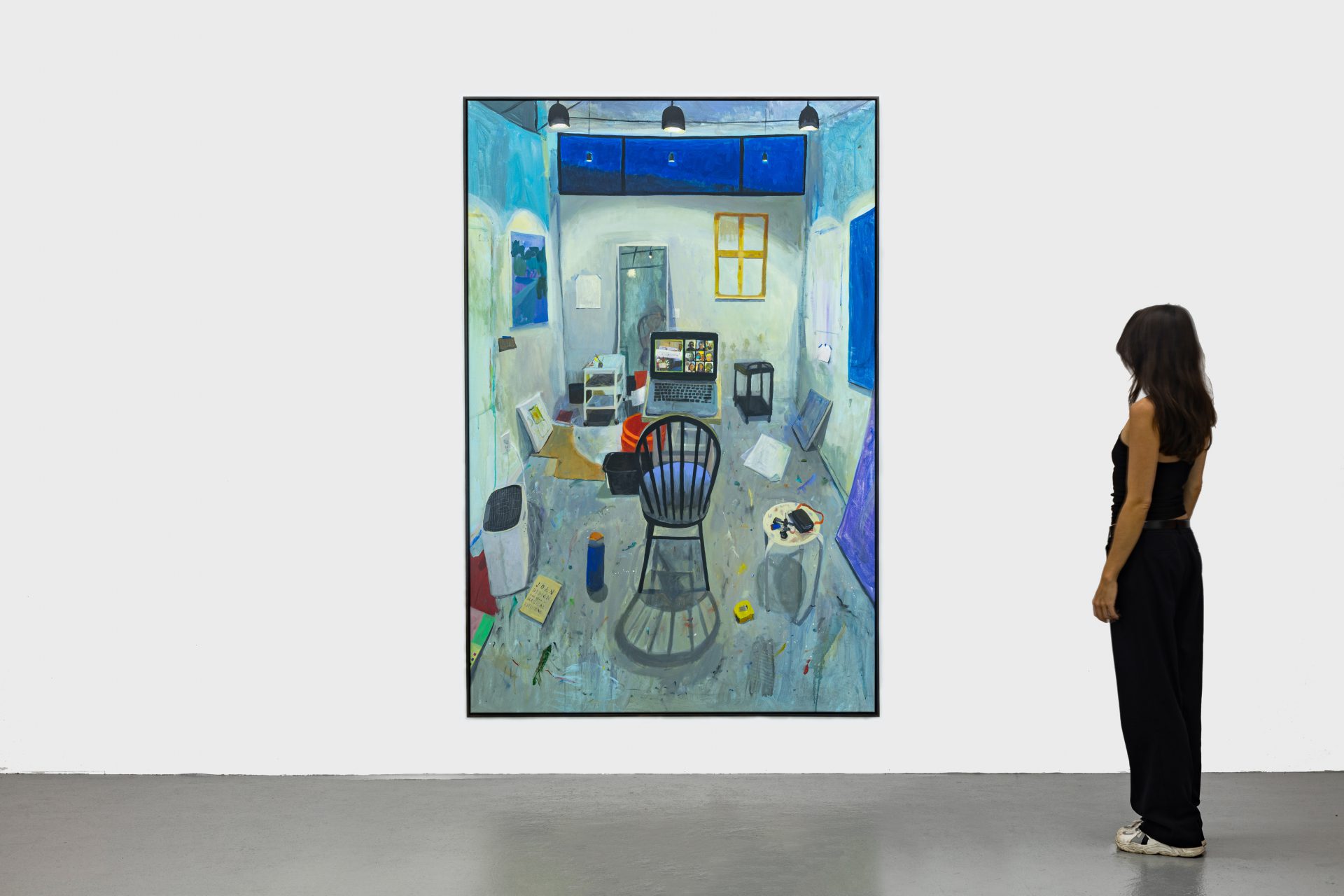A charming body of work.
2 Summers is an art exhibition from Filipino-American artist Mikey Yates. Currently showing at COMA‘s Chippendale space, it offers a delightful insight into Yates’ life and perception of self. Though these insights could sometimes be better refined, the exhibition provides an interesting take on his position in the world, and ours as well.
Like other shows by Yates, 2 Summers is inherently introspective. Per its program, its overarching themes are connectedness, the whirlwind emotions that a summer brings, and small moments of hope or peacefulness that encourage optimistic living. These themes are conveyed through a set of figurative paintings, which depict Yates’ contemporaries and the artist himself. The paintings were initially developed during his residency at the Skowhagen School of Painting and Culture in Maine, USA. This is their first time in Australia, and Yates’ first solo showing in the Asia-Pacific region.
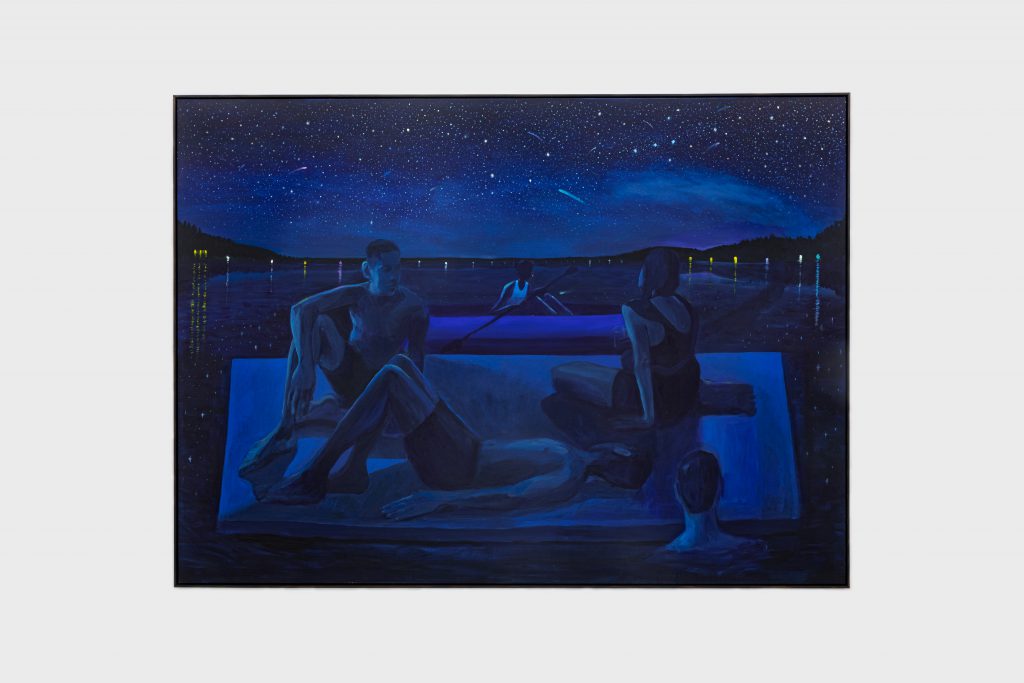
Yates’ artistic vision leads to an provocative set of works, creatively aligned with these themes. On connection, some pieces display a sense of connectedness while others show a lack of it. Night Swim in Maine, for example, depicts relaxed figures dotted in and around a lake under a starry night. Yates’ use of blue is both striking and calming, and the framing of the figures gives the piece a visual depth. This depth integrates like the viewer is in the artwork, as if they are looking over the landscape with their own eyes. Such integration of the viewer is when the connectedness theme resonates most effectively, as it does here.
By contrast, Billy’s Apartment in DTLA presents a lack of connection. It depicts just one figure, seated neutrally in an apartment verandah. This static nature of the work is problematic, leaving too much for the viewer to interpret. On their own, the figure appears disconnected. With an unclear facial expression, it is uncertain whether such disconnection is peaceful, pensive, or something else. Similar issues apply to Sergio; a piece depicting another solitary figure, facial expression unclear, with a lit cigarette.
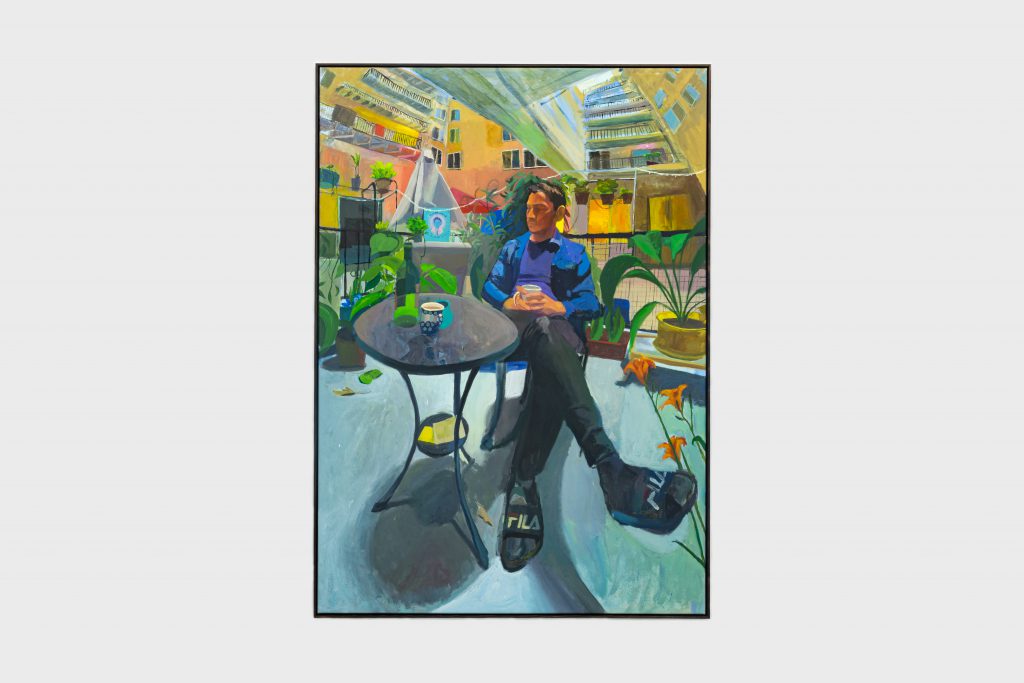
However, when an artwork presents connectedness and isolation simultaneously, the exhibition shines. This dichotomy is most observable in Balut, and Blue Studio / Zoom Funeral. The former depicts a young figure sitting and eating, with a large crowd looking towards him. The focus on that figure, as well as the dynamic colour scheme Yates employs, beautifully contrasts the mundanity of the figure’s action. These factors combine to portray an enthralling conflict between forced connection and fighting for isolation – a true whirlwind of emotions Yates intended to portray.
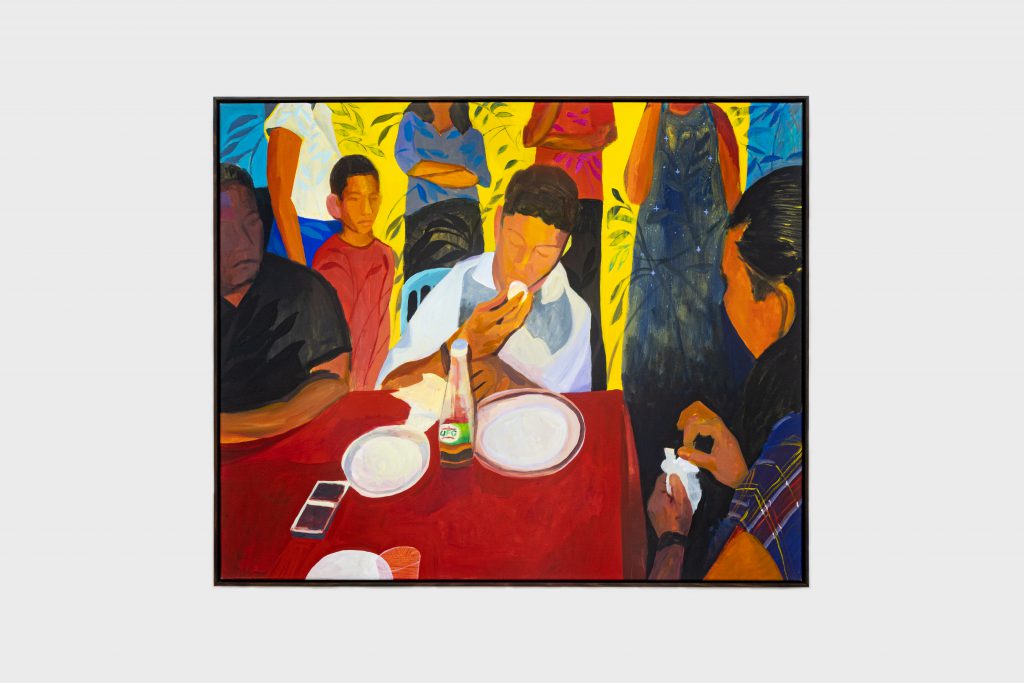
Blue Studio / Zoom Funeral is the apex of the connected-isolation dichotomy, and the exhibition’s highlight. It is a recreation of the funeral of Yates’ uncle, which was forced to be streamed on Zoom. In the artwork, the viewer watches this stream on a computer in a messy studio. The clash between digitally connecting with others whilst isolated alone in a room is one viewers will be familiar with, and Yates presents this with stunning and heartbreaking authenticity. The mess of the studio reflects a cluttered mind, the minuteness of the laptop screen communicates a sense of distance from loved ones, and a subtle reflection of Yates in the artwork means the viewer has adopted his point-of-view in the piece, letting them share in his despair in the moment.
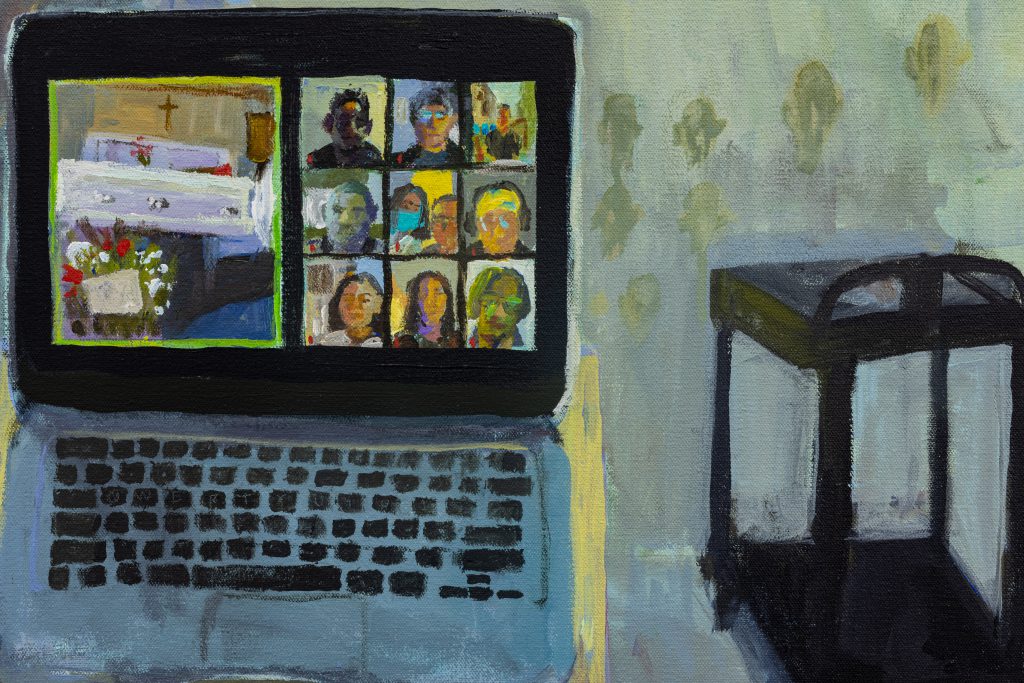
The idea of connection is the most obvious takeaway from 2 Summers. Ironically, there are fewer works explicitly addressing the concept of summer. This may be preferable, as aside from Night Swim in Maine, such works lack of the impact of others on display. Maine Bonfire, depicting a bonfire assumedly in Maine, could have been more compelling if the focus was on a person rather than a chemical process of burning oxygen.
A similar comment can be made about the pieces specifically addressing small moments of hope or peace. Billy’s Apartment in TDLA and Sergio, explored earlier, should portray these moments. Instead, their static nature and limited emotional display renders them as sluggish moments of pause, not necessarily peace, hope, or optimism. Cummings Dorm at Skowhegan is another victim of this, but better works in this regard are Ride Home and At Home. It feels like if Yates had put as much thought into these works as he did Balut, Blue Studio / Zoom Funeral, and Night Swim (which all show off these moments well), then the exhibition would be much more consistent. As such, Yates’ desire to attempt an exploration of these minute moments has only come off a mixed success.
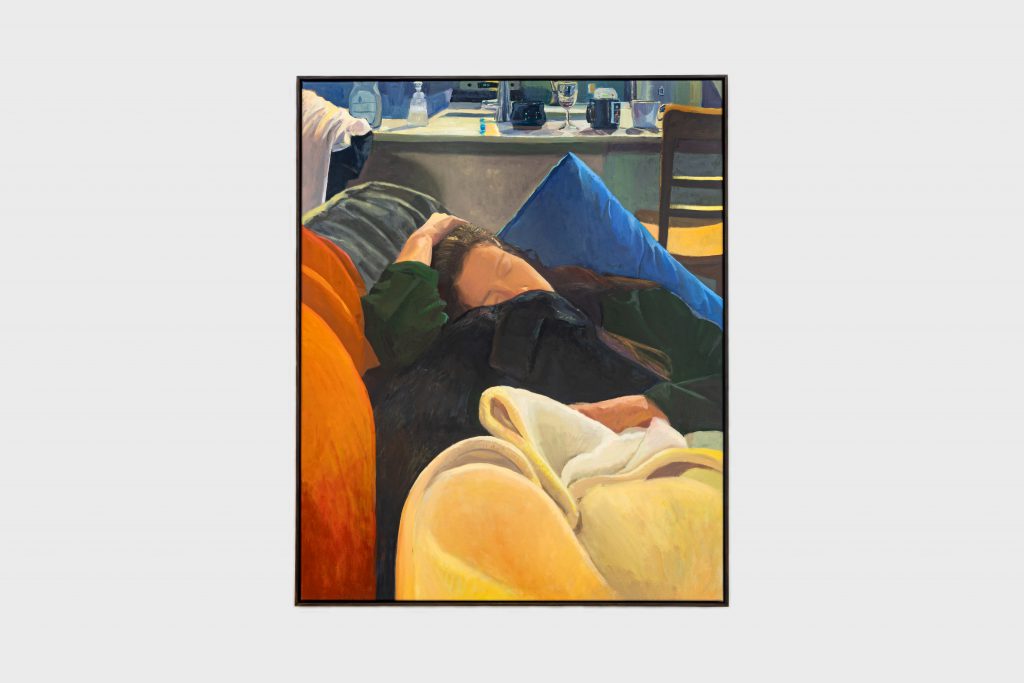
Ultimately, 2 Summers presents an interesting set of artworks. Though some do not reach their full potential, the marquee pieces provide enough thematic depth to offset this issue. The concept of connectedness is explored beautifully, and allows for a thoughtful rumination on a person’s relationship with themselves and the world they inhabit.
